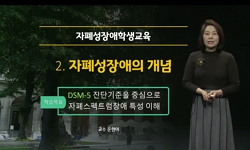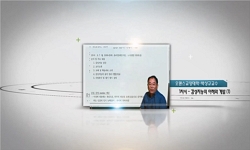Objectives: Individuals with autism spectrum disorder (ASD) are considered to have problems with empathy. It has recently been suggested that there are two systems for empathy; cognitive and emotional. We aimed to investigate the neural response to co...
http://chineseinput.net/에서 pinyin(병음)방식으로 중국어를 변환할 수 있습니다.
변환된 중국어를 복사하여 사용하시면 됩니다.
- 中文 을 입력하시려면 zhongwen을 입력하시고 space를누르시면됩니다.
- 北京 을 입력하시려면 beijing을 입력하시고 space를 누르시면 됩니다.
https://www.riss.kr/link?id=A102189350
- 저자
- 발행기관
- 학술지명
- 권호사항
-
발행연도
2016
-
작성언어
Korean
- 주제어
-
KDC
516
-
등재정보
KCI등재,SCOPUS,ESCI
-
자료형태
학술저널
-
수록면
196-206(11쪽)
-
KCI 피인용횟수
0
- DOI식별코드
- 제공처
-
0
상세조회 -
0
다운로드
부가정보
다국어 초록 (Multilingual Abstract)
Objectives: Individuals with autism spectrum disorder (ASD) are considered to have problems with empathy. It has recently been suggested that there are two systems for empathy; cognitive and emotional. We aimed to investigate the neural response to cognitive and emotional empathy and elucidate the neurobiological aspects of empathy in patients with ASD.
Methods: We recruited patients with ASD (N=17, ASD group) and healthy controls (HC) (N=22, HC group) for an functional magnetic resonance imaging study. All of the subjects were scanned while performing cognitive and emotional empathy tasks. The differences in brain activation between the groups were assessed by contrasting their neural activity during the tasks.
Results: During both tasks, the ASD group showed greater neural activities in the bilateral occipital area compared to the HC group. The ASD group showed more activation in the bilateral precunei only during the emotional empathy task. No brain regions were more activated in the HC group than in the ASD group during the cognitive empathy task. While performing the emotional empathy task, the HC group exhibited greater neural activities in the left middle frontal gyrus and right anterior cingulate gyrus than the ASD group.
Conclusion: This study showed that the brain regions associated with cognitive and emotional empathy in ASD patients differed from those in healthy individuals. The results of this study suggest that individuals with ASD might have defects both in cognitive empathy and in emotional empathy.
참고문헌 (Reference)
1 강일, "한국어판 대인 관계 반응성 척도의 신뢰도 및 타당도 연구" 대한신경정신의학회 48 (48): 352-358, 2009
2 박은혜, "성차에 대한 Baron-Cohen의 공감하기-체계화하기 이론 검증" 한국여성심리학회 14 (14): 269-286, 2009
3 Rogers K, "Who cares? Revisiting empathy in Asperger syndrome" 37 : 709-715, 2007
4 Van Overwalle F, "Understanding others’ actions and goals by mirror and mentalizing systems: a meta-analysis" 48 : 564-584, 2009
5 Shamay-Tsoory SG, "Two systems for empathy: a double dissociation between emotional and cognitive empathy in inferior frontal gyrus versus ventromedial prefrontal lesions" 132 (132): 617-627, 2009
6 Golan O, "The ‘Reading the Mind in the Voice’ test-revised: a study of complex emotion recognition in adults with and without autism spectrum conditions" 37 : 1096-1106, 2007
7 Uddin LQ, "The self and social cognition: the role of cortical midline structures and mirror neurons" 11 : 153-157, 2007
8 Pitcher D, "The role of the occipital face area in the cortical face perception network" 209 : 481-493, 2011
9 Shamay-Tsoory SG, "The neural bases for empathy" 17 : 18-24, 2011
10 Decety J, "The functional architecture of human empathy" 3 : 71-100, 2004
1 강일, "한국어판 대인 관계 반응성 척도의 신뢰도 및 타당도 연구" 대한신경정신의학회 48 (48): 352-358, 2009
2 박은혜, "성차에 대한 Baron-Cohen의 공감하기-체계화하기 이론 검증" 한국여성심리학회 14 (14): 269-286, 2009
3 Rogers K, "Who cares? Revisiting empathy in Asperger syndrome" 37 : 709-715, 2007
4 Van Overwalle F, "Understanding others’ actions and goals by mirror and mentalizing systems: a meta-analysis" 48 : 564-584, 2009
5 Shamay-Tsoory SG, "Two systems for empathy: a double dissociation between emotional and cognitive empathy in inferior frontal gyrus versus ventromedial prefrontal lesions" 132 (132): 617-627, 2009
6 Golan O, "The ‘Reading the Mind in the Voice’ test-revised: a study of complex emotion recognition in adults with and without autism spectrum conditions" 37 : 1096-1106, 2007
7 Uddin LQ, "The self and social cognition: the role of cortical midline structures and mirror neurons" 11 : 153-157, 2007
8 Pitcher D, "The role of the occipital face area in the cortical face perception network" 209 : 481-493, 2011
9 Shamay-Tsoory SG, "The neural bases for empathy" 17 : 18-24, 2011
10 Decety J, "The functional architecture of human empathy" 3 : 71-100, 2004
11 Baron-Cohen S, "The extreme male brain theory of autism" 6 : 248-254, 2002
12 Baron-Cohen S, "The empathy quotient: an investigation of adults with Asperger syndrome or high functioning autism, and normal sex differences" 34 : 163-175, 2004
13 Smith A, "The empathy imbalance hypothesis of autism: a theoretical approach to cognitive and emotional empathy in autistic development" 59 : 489-510, 2009
14 de Vignemont F, "The empathic brain: how, when and why" 10 : 435-441, 2006
15 Baron-Cohen S, "The autism-spectrum quotient (AQ): evidence from Asperger syndrome/ high-functioning autism, males and females, scientists and mathematicians" 31 : 5-17, 2001
16 김영신, "The Reliability and Validity of Kiddie-Schedule for Affective Disorders and Schizophrenia-Present and Lifetime Version-Korean Version (K-SADS-PL-K)" 연세대학교의과대학 45 (45): 81-89, 2004
17 Le Couteur A, "The Autism Diagnostic Interview-Revised (ADI-R)" Western Psychological Services 2003
18 Constantino JN, "Social Responsiveness Scale (SRS)" Western Psychological Services 2005
19 Kaufman J, "Schedule for Affective Disorders and Schizophrenia for School- Age Children-Present and Lifetime version (K-SADS-PL): initial reliability and validity data" 36 : 980-988, 1997
20 Simonoff E, "Psychiatric disorders in children with autism spectrum disorders: prevalence, comorbidity, and associated factors in a population-derived sample" 47 : 921-929, 2008
21 Wheelwright S, "Predicting Autism Spectrum Quotient (AQ) from the Systemizing Quotient-Revised (SQ-R) and Empathy Quotient (EQ)" 1079 : 47-56, 2006
22 Decety J, "Physicians down-regulate their pain empathy response: an event-related brain potential study" 50 : 1676-1682, 2010
23 Dziobek I, "Neuronal correlates of altered empathy and social cognition in borderline personality disorder" 57 : 539-548, 2011
24 Passarotti AM, "Neural correlates of incidental and directed facial emotion processing in adolescents and adults" 4 : 387-398, 2009
25 Lamm C, "Meta-analytic evidence for common and distinct neural networks associated with directly experienced pain and empathy for pain" 54 : 2492-2502, 2011
26 Matson JL, "Intellectual disability and its relationship to autism spectrum disorders" 30 : 1107-1114, 2009
27 Jabbi M, "Empathy for positive and negative emotions in the gustatory cortex" 34 : 1744-1753, 2007
28 Straube T, "Effect of task conditions on brain responses to threatening faces in social phobics: an event-related functional magnetic resonance imaging study" 56 : 921-930, 2004
29 Dziobek I, "Dissociation of cognitive and emotional empathy in adults with Asperger syndrome using the Multifaceted Empathy Test (MET)" 38 : 464-473, 2008
30 Lockwood PL, "Dissecting empathy: high levels of psychopathic and autistic traits are characterized by difficulties in different social information processing domains" 7 : 760-, 2013
31 Straube T, "Common and distinct brain activation to threat and safety signals in social phobia" 52 : 163-168, 2005
32 Kim JE, "Cognitive and emotional empathy in adolescent ADHD: an fMRI study" Chungbuk National Univ 2015
33 Constantino JN, "Autistic traits in the general population: a twin study" 60 : 524-530, 2003
34 Baron-Cohen S, "Autism: the empathizing-systemizing (E-S) theory" 1156 : 68-80, 2009
35 Lord C, "Autism diagnostic observation schedule: a standardized observation of communicative and social behavior" 19 : 185-212, 1989
36 Myles BS, "Asperger Syndrome Diagnostic Scale" Pro-ED 2001
37 Mazza M, "Affective and cognitive empathy in adolescents with autism spectrum disorder" 8 : 791-, 2014
38 Kim JH, "A study of reliability & validity for the Korean version of Asperger syndrome diagnostic scale" 16 : 98-105, 2005
39 Davis MH, "A multi-dimensional approach to individual differences in empathy" 75 : 989-1015, 1980
동일학술지(권/호) 다른 논문
-
- 대한소아청소년정신의학회
- 반건호(Geon Ho Bahn)
- 2016
- KCI등재,SCOPUS,ESCI
-
재난 시 소아청소년 정신건강 평가 및 치료의 주요 요소
- 대한소아청소년정신의학회
- 박장호(Jang-Ho Park)
- 2016
- KCI등재,SCOPUS,ESCI
-
우리나라 고등학교의 정신건강이 학업성취도와 학업중단율에 미치는 영향
- 대한소아청소년정신의학회
- 방은주(Eun Ju Bang)
- 2016
- KCI등재,SCOPUS,ESCI
-
- 대한소아청소년정신의학회
- 고미애(Miae Ko)
- 2016
- KCI등재,SCOPUS,ESCI
분석정보
인용정보 인용지수 설명보기
학술지 이력
| 연월일 | 이력구분 | 이력상세 | 등재구분 |
|---|---|---|---|
| 2022 | 평가예정 | 재인증평가 신청대상 (재인증) | |
| 2019-01-01 | 평가 | 등재학술지 유지 (계속평가) |  |
| 2016-01-01 | 평가 | 등재학술지 유지 (계속평가) |  |
| 2012-01-01 | 평가 | 등재 1차 FAIL (등재유지) |  |
| 2009-01-01 | 평가 | 등재학술지 선정 (등재후보2차) |  |
| 2008-01-01 | 평가 | 등재후보 1차 PASS (등재후보1차) |  |
| 2006-01-01 | 평가 | 등재후보학술지 선정 (신규평가) |  |
학술지 인용정보
| 기준연도 | WOS-KCI 통합IF(2년) | KCIF(2년) | KCIF(3년) |
|---|---|---|---|
| 2016 | 0.63 | 0.63 | 0.68 |
| KCIF(4년) | KCIF(5년) | 중심성지수(3년) | 즉시성지수 |
| 0.69 | 0.71 | 1.282 | 0.04 |






 ScienceON
ScienceON DBpia
DBpia






